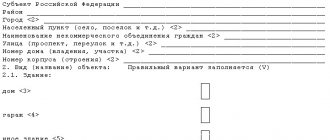Changing the fee size is possible only with the permission of the OSS
When concluding a management agreement, the owners of the premises and the management authority must include clauses in it on the procedure for determining the price of the agreement and the amount of payment for the maintenance and repair of residential premises, the procedure for making such payment (clause 3, part 3, article 162 of the Housing Code of the Russian Federation). Also in the management agreement, the parties agree on a list of works and services for the management, maintenance and repair of the house (clause 2, part 3, article 162 of the Housing Code of the Russian Federation).
The list of works and services included in the management agreement cannot be less than the minimum list approved by the RF Government No. 290 to ensure proper maintenance of the common property of the apartment building.
In accordance with Part 7 of Art. 156 of the Housing Code of the Russian Federation, if a homeowners association or residential complex has not been created in the house, then the amount of payment for the residential premises is set on the OSS, taking into account the proposals of the organization managing the house. The general meeting of owners is held in accordance with the requirements of Art. 45–48 Housing Code of the Russian Federation. The amount of the fee is approved for a period of at least 12 months.
How to correctly reflect the indexation of its price in a management agreement
285018
Who sets the house maintenance rate?
First, let’s define what is generally included in the “house maintenance” expense item. The management company (or HOA) must provide the following services:
- Home management services.
- Carrying out routine repairs and maintaining common property in good condition. But major repairs are not included in this expense item.
Also, the maintenance of the house includes payment for utilities, which are provided to the entire house, and not to individual apartments. For example: heating of common areas and technical floors, lighting of the local area, staircases, entrance; technical water supply.
The basic tariff for maintaining a house is determined by the local government. But the owner of the house at a general house meeting can reduce or increase this tariff - at their discretion, as long as this money is enough for the needs of the house.
The management company itself can suggest how much you need to pay. But, if the owners unreasonably disagree with this and at the general meeting approve an amount much less than what is actually needed, the management company has the right to go to court and challenge such a decision.
Conclusion: local authorities can set a general tariff, but in an apartment building the co-owners themselves decide how much money to spend on it.
The courts do not recognize as legal the indexation of the amount of fees without OSS
In paragraph 17 of the resolution of the Plenum of the Armed Forces of the Russian Federation dated June 27, 2017 No. 22, it is noted that the MA does not have the right to unilaterally:
- change the procedure for determining the amount of payment for the maintenance of residential premises,
- charge a fee for the maintenance of residential premises in an amount exceeding the amount of such fee approved by the OSS.
In this case, the RF Armed Forces refers to Part 7 of Art. 156, part 1–3, 8 art. 162 LC RF, clause 1 art. 310, paragraph 1, art. 432, art. Art. 450–453 Civil Code of the Russian Federation.
This position of the Supreme Court of the Russian Federation is cited by courts of all instances when examining disputes between management organizations and bodies of State Housing Property, which, when inspecting the activities of the management authority, establish the fact of an increase in the amount of rent for residential premises without conducting an OSS and issue orders to eliminate the violation.
The courts recognize such orders as legal, pointing out that the management company did not have the right to index the amount of fees without conducting an OSS. For example, the Supreme Court of the Russian Federation came to this conclusion in case No. A75-10618/2015, upholding the decision of the previous court and confirming the legality of the requirements of the State Housing Inspectorate to recalculate the payment for the maintenance of residential premises to the residents of the house, who did not decide at the OSS to increase the amount of such payment .
The court focuses on the fact that the terms of the annual indexation of the fee included in the management agreement and the procedure for such indexation cannot be considered by the court as evidence of the decision made at the OSS to change the amount of the fee (case No. A50-9160/2017).
Increase in management tariffs
By itself, no management company can raise tariffs for anything. But, she can initiate this by convening a general meeting of the co-owners of the house. This is done as follows:
- 10 days before the expected date of the general meeting, the management company must send out notices to the owners of apartments in the apartment building that the following issues will be considered on a certain date and time.
- In addition to the announcement, the management company must prepare an estimate of what work is planned to be carried out, how much money is needed for this, and how much is missing.
Important: at the general meeting only those issues that the management company states in the notice can be considered.
Notifications to residents can be handed to them against their signature in the register. You can also place an ad in the entrance, duplicate it in the general messenger chat (if there is one) or on the website.
The management company or HOA does not have the right to hold a meeting without notifying the owners of the apartment buildings.
The management office tried to defend in court the right to increase fees without conducting an OSS
Let's consider case No. A76-3786/2017, in which the court of cassation and the Supreme Court of the Russian Federation in 2021 came to a different conclusion. The organization managing the apartment building appealed to the court, demanding that the order of the Chelyabinsk Region State Housing Inspectorate to eliminate violations by the administrative authority in terms of increasing the amount of rent for residential premises be invalidated.
During an unscheduled inspection, the State Housing Property Inspectorate established that the management office indexed the amount of fees for the maintenance and repair of residential premises without holding a general meeting of owners. The supervisory authority ordered the management authority to recalculate the charges for residents and return the fee to the level previously approved by the OSS.
The first and second courts based their conclusions on Part 7 of Art. 162 Housing Code of the Russian Federation. They noted that, according to the law, the main way to change the amount of payment for the maintenance and repair of residential premises is the expression of the will of the owners of premises in an apartment building at a general meeting. Any other method is contrary to the requirements of the law and violates consumer rights.
Such a requirement of housing legislation should ensure transparency in determining the amount of payment and guarantee the rights and interests of owners as the weakest party in relations with the management organization.
In the appellate court, the management authority insisted that the indexation was carried out in accordance with the management agreement concluded with the owners of the premises at the OSS. The decision of this meeting was not challenged in court, therefore, the established procedure for indexing the amount of fees is in effect.
However, the appellate court did not accept this as evidence of the illegality of the GZHI order. The judge came to the conclusion that the management increased the fee against the will of the owners unilaterally and in violation of the deadlines: before the expiration of one year from the date of its establishment.
This position of the two courts was consistent with established practice, including the RF Armed Forces:
- Resolution of the Supreme Court of the Russian Federation dated June 23, 2015 No. 304-AD15-6059 in case No. A27-19838/2014,
- Resolution of the Eighteenth Arbitration Court of Appeal dated 04/06/2016 in case No. A76-24260/2015,
- ruling of the Supreme Court of the Russian Federation dated April 14, 2017 No. 304-ES17-2651 in case No. A45-7987/2016.
We are adjusting the management agreement in accordance with the regulations adopted in 2021
116441
An increase in the fee without OSS is possible if this condition is included in the management agreement
The UO in the cassation appeal indicated that the owners of the OSS did not establish a fixed amount of fees for the maintenance and repair of residential premises, but agreed on a mechanism for calculating and changing fees - in accordance with the regulations of local governments. This mechanism was applied from the moment the terms of the apartment management agreement were approved and did not change during its validity.
The Court of Cassation noted that previous courts did not take into account that the management agreement for apartment buildings must contain the procedure for determining the price of the agreement and the amount of payment for the maintenance and repair of residential premises (Clause 3, Part 3, Article 162 of the Housing Code of the Russian Federation).
The management agreement between the management company and the owners states that the amount and frequency of changes in fees for work and services for maintenance and routine repairs are established in accordance with the regulations of local governments.
Accordingly, the parties to the management agreement provided for the possibility of changing the payment for work and services for direct maintenance and routine repairs in accordance with the decisions of the local self-government body. The order of the State Property Committee was declared illegal, and the decisions of previous courts were overturned.
The Supreme Court of the Russian Federation, to which the GZHI, in turn, filed a complaint, in a ruling dated April 16, 2021, agreed with the conclusions of the court of cassation, thereby confirming that if in the management agreement the owners and the management authority agreed on the procedure for indexing the amount of fees for the maintenance and repair of residential premises, then there is no need to carry out OSS to change this board. In this case, the indexation of the fee amount will not be considered unilateral.
The legislative framework
Starting from January 2021, Federal Legislation dated December 31, 2021 No. 485 amended the main legal act in the housing and communal services sector:
- Amendments have been made to Article 156, paragraph 11 of the Housing Code of the Russian Federation: if an unlawfully inflated tariff for housing and communal services is detected, the company is subject to penalties in the amount of up to 50% of the amount of overstatement.
- Funds will be transferred in favor of the payer of services to his personal account to offset subsequent payments.
If a company categorically refuses to provide financial and other documentation to a group of residents, as required by mutual agreement, then it is subject to an administrative fine under Art. 5.39 Code of Administrative Offenses of the Russian Federation.
The new provisions of Art. 157 of the RF Housing Code stipulates other conditions for the provision of quality services to the population, and provides for administrative liability for incorrect calculation of the cost of services and inadequate quality.
In particular, the article explains:
- In the case of the supply of vital services to consumers with interruptions that differ in regulatory requirements, the user is recalculated and penalties are paid.
- If the quality of utilities or housing services leaves much to be desired, then do the same with the previous option.
- Calculation of calculations is carried out on the basis of meter readings for each resource, and in its absence, the standards established by local governments are applied, with the possibility of applying an increasing coefficient.
- For each service provided, payments are made according to its own rates and rules, taking into account the quality indicator.
An increase in the fee without OSS is possible if there are conditions in the management agreement
The Ministry of Construction of the Russian Federation also agreed with this opinion of the RF Armed Forces in letter dated December 26, 2018 No. 51876-OO/04. The agency directly indicated that indexation of the amount of fees for the maintenance and repair of residential premises may be provided for by the terms of the management agreement.
In this case, the management organization does not need to re-submit this issue to the general meeting of owners. Indexation has already been established by agreement of the parties and will not be a unilateral decision of the management organization.
In what form should the MA prepare the annual report for 2021?
252616
Arbitrage practice
The courts also agree that a unilateral increase in rent for an apartment contradicts the fundamentals of the current legislation. As an example, it is worth considering the following cases from judicial practice.
- Residents of one of the high-rise buildings in Barnaul have approved the tariffs for repairs and maintenance of their premises. When the Management Committee began to insist on increasing housing fees, members of the general meeting unanimously opposed it. However, a surprise awaited the owners in the next payments for housing and communal services: the tariffs were nevertheless increased. The prosecutor filed a lawsuit against the management company, acting in the interests of the residents. The result of the proceedings was the decision by the judge of the Leninsky District Court of Barnaul to recognize the actions of public utilities as illegal. People were recalculated and overpaid funds were returned.
- Residents of an apartment building in Moscow discovered that with the onset of July, the figures on their bills for some items suddenly increased. Outraged people filed a collective complaint with the Housing Inspectorate. Officials supported the residents and sent an order to the management company to reduce tariffs, but the utilities refused to eliminate the violation. The court that considered the Housing Inspectorate's claim put an end to this dispute. As it turned out, the management agreement included a clause requiring residents to agree to an annual revision of the cost of utilities.
Thus, increasing tariffs for owners without their consent is illegal . The Ministry of Construction of the Russian Federation adheres to the same point of view in its information letters.
However, property owners cannot reduce fees for housing and communal services without taking into account the opinion of the management company. Even if such a decision is made at a general meeting, the management company has the right to ignore it.
Also, the Criminal Code may file a lawsuit to declare the decision of the OSS illegal. The defendant in this situation will be the initiators of the meeting, who will bear the legal costs.
Remember
This position of the RF Armed Forces and the opinion of the RF Ministry of Construction, expressed in letter No. 51876-OO/04 dated December 26, 2018, once again formulate important postulates for management that should be taken into account when signing a management agreement and indexing the amount of fees for the maintenance and repair of residential premises:
1. The main way to change the established fee is by decision of the general meeting of owners of premises in the house. This issue can be brought up to the OCC no more than once a year.
2. Another way is to include an indexation mechanism in the management agreement and approve this mechanism at the OSS. In this case, the management may change the amount of the fee in accordance with the approved procedure without holding a general meeting.






